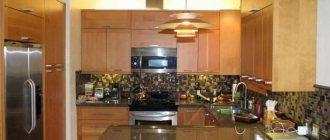How to start a business from scratchBusiness premises
In what premises is it customary to conduct business? Of course, in non-residential ones. What do you associate with the word “business”? How do you understand the phrase: “This guy has his own business”? Most people imagine a store or some kind of office with a secretary in a miniskirt. Few people think that it is possible to conduct business at home or without any premises at all. Many simply do not believe that this is possible. They remove their apartments from the housing stock, sometimes without even thinking about whether this is necessary to do this at all for this type of activity.
We optimize costs
I strongly recommend that you analyze the possibility of operating a business without premises or at home, and only then search for non-residential premises.
The fact is that:
The essence of effective management is the rational use of the budget.
Always remember this phrase when you have a desire to spend money thoughtlessly. Don't be led by emotions. In business you need to be cool-blooded - this is the only way to achieve success.
However, some types of activities are not able to function effectively without the use of non-residential premises. For example, shops, offices of legal entities, points for receiving orders from the public, warehouses, etc. I want to tell you about the features of choosing such premises. I suggest starting with the wording.
Improper use - liability
Many citizens ask the question: “How to change the purpose of non-residential premises?” Let’s figure it out.
If the new direction of activity does not entail drastic interventions in the layout and design of the premises, then changing the intended purpose of a non-residential property will not be particularly expensive in terms of time or money.
On his own initiative, the tenant is not given the right to change the intended purpose of the property, but only with the consent of the owner or on his instructions, executed by a notary.
For any type of activity, it will be necessary to obtain approval in the form of a conclusion from the State Fire Inspectorate at the level of the district fire inspection department.
Next, it is important to obtain the opinion of Rospotrebnadzor, since this is the body in charge of the dignity. epid. permits, without paper from this body it is impossible to start operating a catering establishment, store, etc. You need to order plans for the rooms below and above from the BTI.
Even if the owner himself is completely sure that the premises are suitable and meet all the requirements of the Resolution of Ch. state rank doctor of the Russian Federation dated 09/07/2001 N 23, then his confidence means nothing without a document from Rospotrebnadzor specialists.
Then you should prepare:
- title papers for the property;
- registration certificate;
- explication, floor plans;
- certificate on the technical condition of the building structures (from the BTI);
- a recent document on inventory value (from the BTI);
- a paper from housing and communal services confirming that there are no debts to pay for utilities.
A package of documents with an application from the owner (or the tenant on his behalf) should be submitted to the District Prefecture. Having received a positive answer, you can adjust the purpose of the premises in the Unified State Register.
https://www.youtube.com/watch?v=ytcopyrightru
When starting activities in a new field, it is important not to forget to notify Rospotrebnadzor about this (Article 8 of Federal Law No. 294).
The purposes of using non-residential premises must correspond to the type of activity carried out in it, and can be as follows:
- Communal and household.
- Medical.
- Educational.
- Trading.
- Production.
- Warehouse.
- Office.
- Sports.
- Intended for public catering.
- Free appointment, etc.
EGRN includes a list of information presented in text and graphic form, and consists of: real estate cadastre, register of rights to real estate, register files, register of boundaries, cadastral maps and books of documents (Article 7 of the Federal Law No. 218 of July 13, 2015 .).It is worth noting that the Register stores not only current data, but also previously entered information about real estate objects.
According to functionality, there is a division into:
- Basic.
- Attendants.
- Technical.
- Communication.
- Auxiliary.
Thus, non-residential premises can be used for a variety of purposes, in addition to living in them.
Using non-residential premises for other purposes is fraught with administrative liability, and therefore, both legally and in fact, one must adhere to all legal requirements and norms.
In addition, Art. 15 of the Housing Code of the Russian Federation contains a number of requirements that a residential premises must meet, and, therefore, if they are violated, living in it is prohibited, it is automatically recognized as non-residential.
There is currently no direct liability for living in a building that does not meet the requirements of the law. But there are penalties regarding non-compliance with SES standards: noise level, layout, occupied space, lighting, etc.
In monetary terms, ordinary citizens face a fine of 500-1000 rubles, officials and individual entrepreneurs will have to pay 1000-2000 rubles, and legal entities - 10,000-20,000 rubles. Entrepreneurs also face suspension of activities for up to 90 days, and legal entities. persons for a period of up to three months (Article 6.4 of the Code of Administrative Offenses of the Russian Federation).
The essence of imposing fines is not punishment as such, but the protection of the life and health of the citizens themselves, because staying in a facility that does not meet the requirements is not at all safe.
What is non-residential premises
Real estate objects are divided into two categories: residential and non-residential. The first category includes residential buildings, and the second includes objects that are not intended and are not used by citizens as homes. In relation to business, the following definition can be derived:
Non-residential premises
– these are real estate objects in which entrepreneurs are allowed to open shops, offices, warehouses, order acceptance points, exhibition centers, etc.
Such premises significantly expand business opportunities and contribute to its rapid development.
Separately, at a conference call held by Deputy Head of Rosreestr Maxim Smirnov, the resolution of the Constitutional Court of the Russian Federation dated November 14, 2021 and the ruling of the Supreme Court of the Russian Federation dated October 21, 2021, concerning the application of the provisions of Part 1 of Article 8.8 of the Code of Administrative Offenses of the Russian Federation when initiating and considering cases of administrative offenses.
“The judicial panel for economic disputes of the Supreme Court of the Russian Federation, consisting of: presiding judge Pershutov A.G., judges Pronina M.V., Tyutin D.V., considered in open court the cassation appeal of the Office of the Federal Service for State Registration, Cadastre and Cartography in the Krasnodar Territory on the decision of the Arbitration Court of the Krasnodar Territory dated January 25, 2019 in case No. A32-49415/2018 and the decision of the Fifteenth Arbitration Court of Appeal dated April 25, 2019 on the same case on the application of the state unitary agricultural enterprise "Russia" to the Office of the Federal State Registration Service , cadastre and cartography for the Krasnodar Territory on declaring illegal and canceling the resolution of November 12, 2018 N 398 on bringing to administrative liability, provided for in Part 1 of Article 8.8 of the Code of the Russian Federation on Administrative Offences. A representative of the Office of the Federal Service for State Registration, Cadastre and Cartography for the Krasnodar Territory, I.V. Rulev, took part in the court hearing.” The decision of the Supreme Court of the Russian Federation assessed the legality of the law enforcement practice of Rosreestr in bringing to responsibility for the use of land plots not for their intended purpose. During inspections, Rosreestr inspectors encountered cases where buildings or premises in a building are not used in accordance with the type of permitted use of the land.
The provisions of the Land Code of the Russian Federation are also taken into account, requiring Rosreestr officials to inform local government bodies about the identification of the location of a capital construction project on a land plot on which the placement of such an object is not allowed in accordance with the permitted use of the land plot or established restrictions on its use. “For example, a building is located on a land plot intended for industrial facilities, and administrative buildings, shopping centers or public catering establishments are located on the site. In this case, such land plot is not used for its intended purpose in accordance with the type of permitted use. In its ruling, the Supreme Court of the Russian Federation recognized the actions of Rosreestr as correct and put an end to this issue. The court also justified its decision by the fact that by using the buildings in this way, the owner actually evades payment of land tax, the rate of which is calculated taking into account the type of permitted use, and the procedure for calculating the cadastral value changes,” said the deputy head of Rosreestr. Text of the Ruling of the Supreme Court of the Russian Federation
Main advantages
Conducting business activities in non-residential premises has a number of advantages:
- Business gets its own “territory”.
For example, you can tailor clothes to order at home, or you can open an atelier by renting a small room. In the first case, the business is a “guest” on the “territory” of your home. In the second - the “owner” of the rented premises. Having your own “territory” disciplines the entrepreneur and also stimulates him to be more active. - Empowerment.
Not all activities can be done at home. By opening a store, office or warehouse, you expand the capabilities of your business. The store will increase sales volumes, the office will become the official representation of the business and the workplace of employees, the warehouse will accommodate all available inventory and raw materials. - Advertising platform (point of sale).
Imagine, there is an unknown individual entrepreneur Ivanov. Stays at home, provides accounting services to legal entities and individuals. Places a small line advertisement in the newspaper every week, lives inconspicuously, hardly goes out to people, sometimes forgets his name. And then one day his father-in-law comes to Ivanov in a dream and says: “Open an office, otherwise I’ll come to you every night!” The accountant wakes up in a cold sweat shouting: “No! Not this, Vasily Kirillovich!” In general, the next day Ivanov rents a small room in an office center and places an advertising sign “Quality accounting services” at the entrance. After some time, IP Ivanov will call his father-in-law dad for the first time in 15 years... Nothing special happened in this story. Simply, the office became an advertising platform for IP Ivanov - visitors to the office center, thanks to a well-placed sign, gradually learned about the services of this entrepreneur. The costs of renting the premises were recouped many times over thanks to the attracted clients. Six months later, Ivanov hired several assistant accountants, and a year later he opened an accounting firm and transferred all the routine work to his subordinates. As a result, it grew from a small, unknown individual entrepreneur. A similar situation exists with opening a store. In essence, you have an additional point of sale, which helps increase sales volumes. - Formation of the “correct” image of the company.
Most types of businesses operate in a competitive environment. Naturally, every sensible manager strives to present his company in the most attractive format. The premises are one of the key objects in the formation of the image. As an example, we can cite IP Ivanov, our hero from the previous paragraph. Tell me, who will inspire more confidence in you: the inconspicuous individual entrepreneur Ivanov or LLC Ivanov-consulting-father-in-law? Individual entrepreneur Ivanov lives with his wife’s family in her two-room apartment and receives his clients there. When you come to Ivanov-consulting-test LLC, you immediately plunge into the business atmosphere of this company. Stylish dress code for employees, corporate symbols, high team spirit, disciplined office furniture - all these factors can immediately instill trust and willingness in the client to cooperate. In general, image is not the last thing, friends!
So, we’ve sorted out the advantages, now let’s look at the main functions for which a business uses non-residential real estate.
The court decided
Resolution of the Arbitration Court of the North Caucasus District dated July 7, 2021 No. F08-4447/2016 in case No. A32-5742/2015
Payers of UTII are organizations and individual entrepreneurs engaged in retail trade through shops and pavilions (with a sales floor area of no more than 150 sq. m for each trade facility), through objects of a stationary trading network that does not have trading floors, as well as through objects of a non-stationary trading network (Subclauses 6, 7, Article 346.26 of the Tax Code of the Russian Federation).
A store is a specially equipped building (part of it) intended for the sale of goods and provision of services to customers and provided with trading, utility, administrative and amenity premises, as well as premises for receiving, storing goods and preparing them for sale (Article 346.27 of the Tax Code of the Russian Federation).
The area of a sales floor is understood to mean the part of a store, pavilion (open area) occupied by equipment intended for displaying, demonstrating goods, conducting cash payments and servicing customers, the area of cash registers and cash registers, the area of working places for service personnel, as well as the area of aisles for buyers. The area of the trading floor also includes the rented part of the trading floor area. The area of utility, administrative and service premises, as well as premises for receiving, storing goods and preparing them for sale, in which customer service is not provided, does not apply to the area of the trading floor (Article 346.27 of the Tax Code of the Russian Federation).
Thus, in order to apply the taxation system in the form of UTII, it is necessary that trading activities be carried out through the objects of a stationary and (or) non-stationary trading network.
The courts found that during the audited period the entrepreneur carried out wholesale and retail trade in furniture, external and internal doors and hardware in non-residential premises located in the basement of a residential building. To calculate taxes, he used a special regime in the form of UTII (retail trade carried out through the facilities of a stationary retail chain with trading floors).
According to the lease agreement, the disputed non-residential premises were transferred to the entrepreneur for conducting retail trade as a store-warehouse.
The courts found that the disputed premises are located in the basement of a residential building and were purchased by the landlord as non-residential (not for business purposes). After leasing it to an entrepreneur who used the premises for a store, the lessor reissued the technical passport, which indicated a new purpose - a store.
The lessor argued at the trial that during the entire lease period, the type of use by the entrepreneur of the leased premises did not change. An inspection of the premises showed that the entrepreneur carried out retail trade in furniture and doors, and the area of the sales floor at the time of the inspection was 35 square meters. m.
Having examined the case materials, the arbitration judges came to the conclusion that the entrepreneur had the right to apply the taxation system in the form of UTII. The inspection's decision was declared invalid.
Bukhgalteriya.ru recommends
Invaluable experience in solving current problems, answers to complex questions, specially selected latest information in the press for accountants and managers. Magazines for accountants and entrepreneurs >>
If you have a question, ask it here >>
Functions of non-residential premises in business activities
To solve what problems does modern business use non-residential premises? The most common objects are:
- Outlets.
Establishing sales is a key task of any business. Opening a retail outlet helps to increase sales, which, in turn, leads to the prosperity of the company. But we must remember that not all stores operate efficiently - special attention should be paid to the location of the facility. - Order acceptance points, as well as exhibition centers.
These premises are used primarily in the service sector to process orders from clients. In essence, these are the same retail outlets, only they sell not finished goods, but services for their production. For example, having come to the exhibition center of a custom-made furniture manufacturer, a client can “touch” the exhibition samples and order the production of the product he likes. The so-called stores of doors, windows, blinds, suspended ceilings, etc. work in a similar way. Despite the fact that many of them use retail space in their business, they are not involved in the actual sale of goods on the “here and now” principle. In reality, such points serve as points for receiving orders from the population. - Points for direct provision of services.
If the premises from the previous paragraph are used only for searching for clients and placing orders, then here the customer is provided with all the necessary services on the spot. For example, hairdressers, massage parlors, beauty salons, car service centers, entertainment centers, cafes, restaurants, pizzerias, gyms, service centers, etc. Such premises combine two functions: searching for clients and providing them with services. - Office
for conducting business activities. A company without an office is like a homeless person without a refrigerator box. Most operating companies have a certain staff of accountants, analysts, managers, executives at various levels, etc. All personnel must be provided with jobs, and also united into a team - creating favorable conditions for full-fledged work. This is what office space is for. - Production
can only be opened in non-residential premises specially equipped for this purpose. By the way, regulatory authorities have much higher requirements for them than for ordinary offices. Therefore, opening a production facility is associated with unnecessary financial expenses, hassle and bureaucratic delays. - Warehouses
are used to store goods, raw materials, materials and other products necessary for the operation of a business. When the need arises, companies use such real estate in their activities.
We figured out the main functions. Now let's look at the factors influencing the effectiveness of non-residential premises in performing their functions.
What influences the success of a business in non-residential premises
Every city has different business processes. Some companies open, others cease to exist. So I periodically discover new shops, cafes, and offices on the streets. You know, I often manage to immediately predict their fate: “This point will not last even three months, but this one has a chance to survive with proper business organization. Well, this one will go bankrupt only if its director is a pathological loser.”
How do I make such predictions? Everything is very simple! Sometimes it is enough to verify the presence or absence of factors in the premises that contribute to the success of the business. This is what we're talking about:
- Condition of the premises.
Ragged walls, dirty windows, plaster falling from the ceiling, cobwebs, dried stains on the floor from spilled coffee, etc. – all this is alarming, and also makes you want to run away as quickly as possible. I once looked into one office and wanted to order a plastic window there. From the very first seconds the smell of tobacco hit my nose. Then, looking around the room, I saw dilapidated furniture, smoke-gray walls, “Sovdepov” dirty windows and the sad, gloomy faces of three shaven-headed managers. Already at that moment I had a desire to take a step back and leave the office, but I overcame myself and inquired about their products. One of the managers looked at me casually and smiled mysteriously, flashing a gold crown on his front tooth. He came close to me and... spoke. The powerful smell of fumes hit me in the face, my head began to spin, my vision went dark... Then I only remember how I ran out of this kingdom of darkness into the light of God, and greedily swallowing fresh air, I swore to myself that I would never come closer to this room than this 500 meters. Remember, friends: The premises and its employees are the face of your business. As they say: “you meet people by their clothes.” - Location.
What do you think will sell better in the industrial residential area of the city - luxury clothing or Chinese consumer goods? Which store will attract more visitors - whose doors face the courtyard or the main street? Is it advisable to open, for example, a furniture production facility in the city center and pay huge amounts of money every month to rent these spaces? Unfortunately, many entrepreneurs first open stores, offices, production facilities, etc., and only then, when things don’t go well, they turn on their brains and start thinking about the reasons for their failures. I advise you the following: Don’t be lazy and conduct a marketing analysis of the territory in which you plan to open your business. Remember, unsuccessfully invested money in premises often cannot be returned. But this is a decent part of the budget. - Presence of competitors.
Do you need two hairdressers on the same street? What about two car repair shops? Most will now answer: “No, Yuri!” But I will say this: Each case must be considered individually! You should thoroughly study your competitors’ business, identify its weaknesses, weigh your strengths, and only then draw final conclusions. Naturally, if the competitors are stronger, then it is better to look for a place away from them. If you feel that you are ready to “butt heads” with them, then you can not pay attention to these losers.
So, friends, I hope you are not too tired and are ready to continue learning the basics of entrepreneurship. If yes, then we move on to the next important topic: Features of renting non-residential premises for business.
Our groups:









